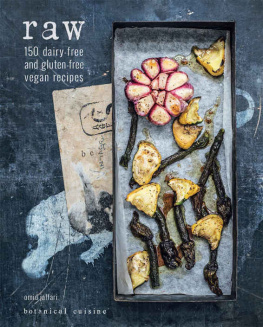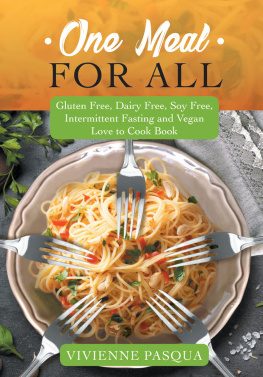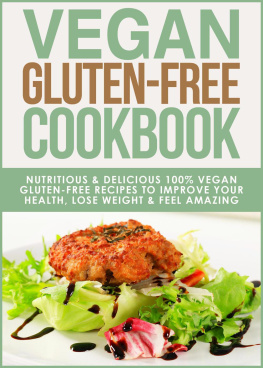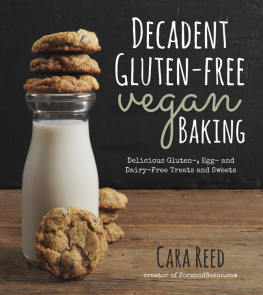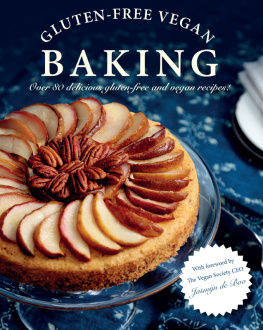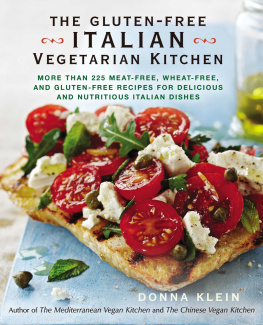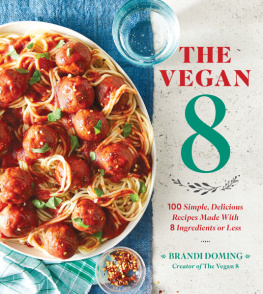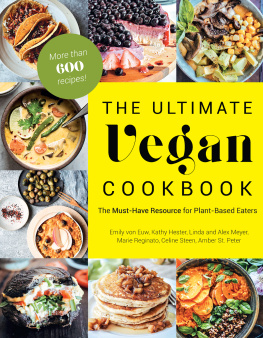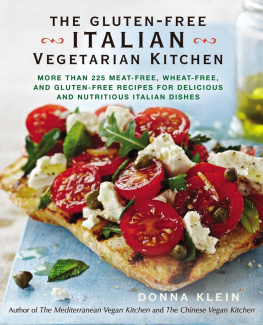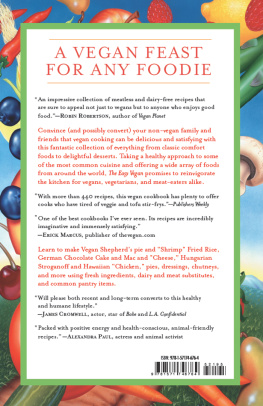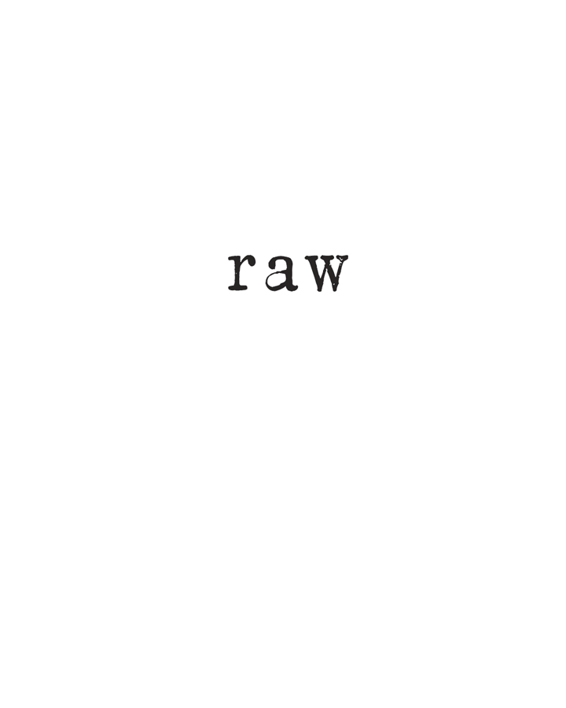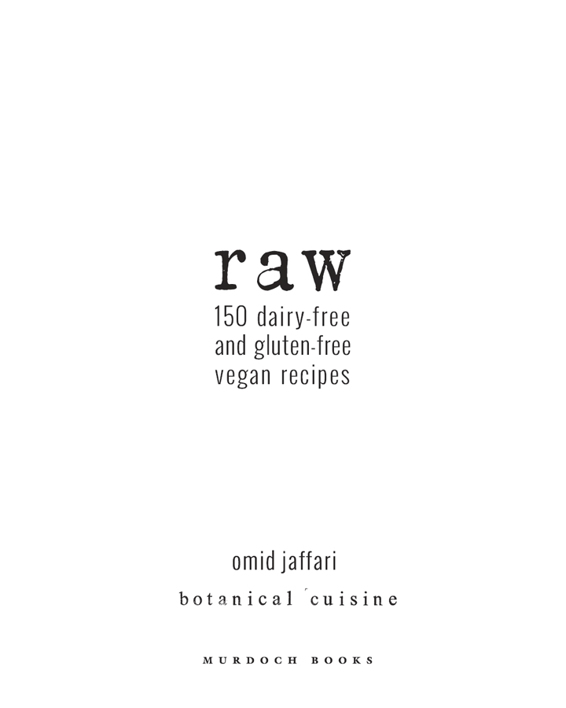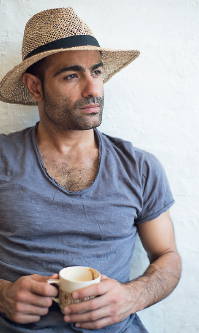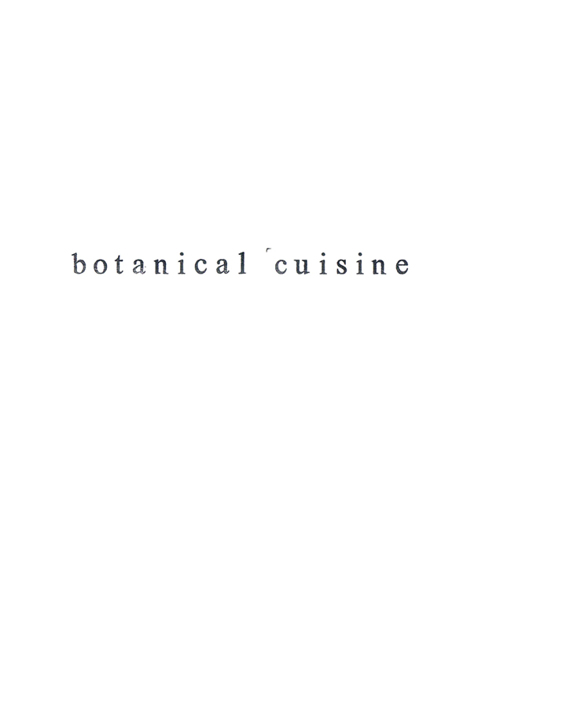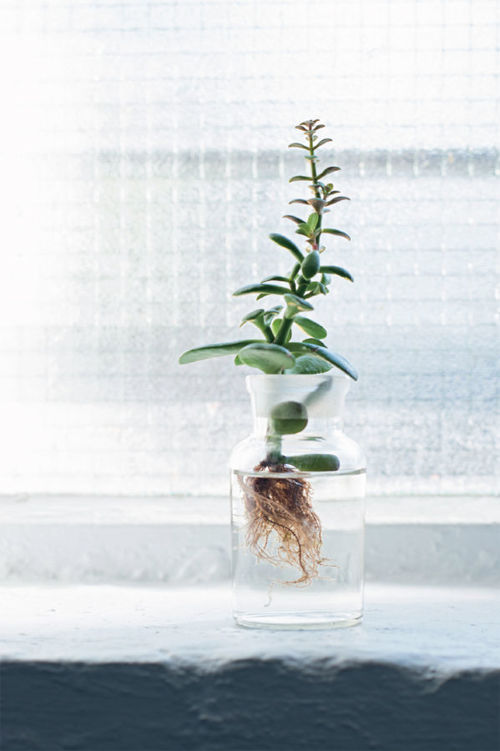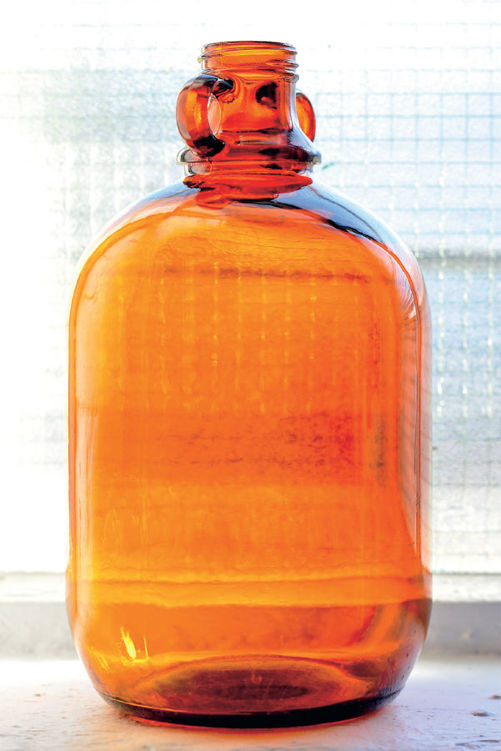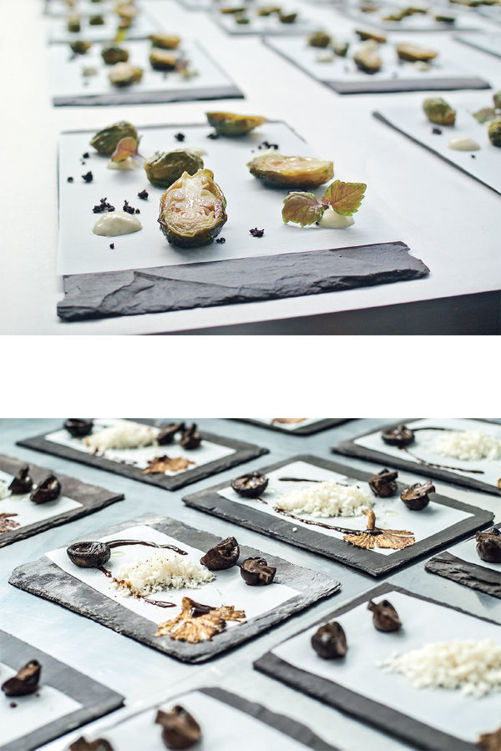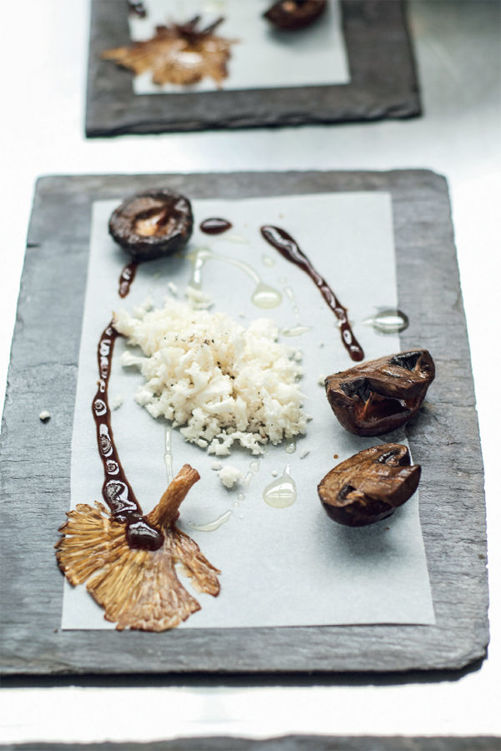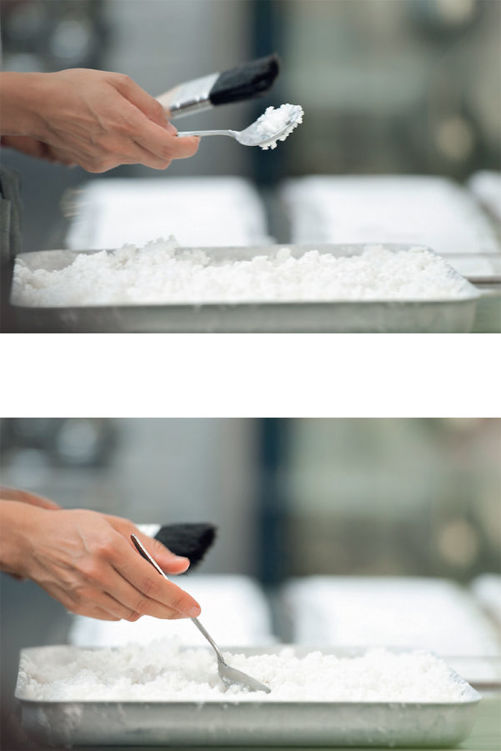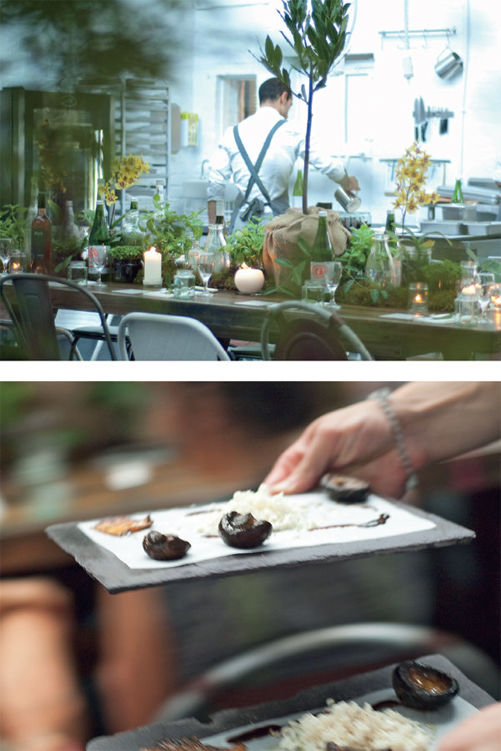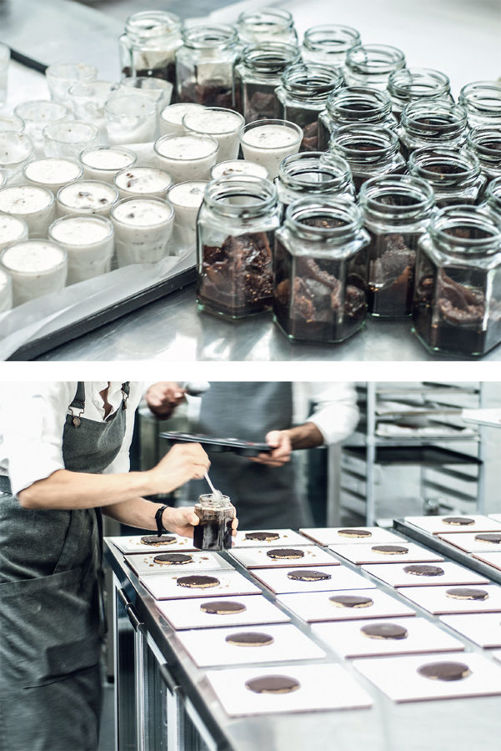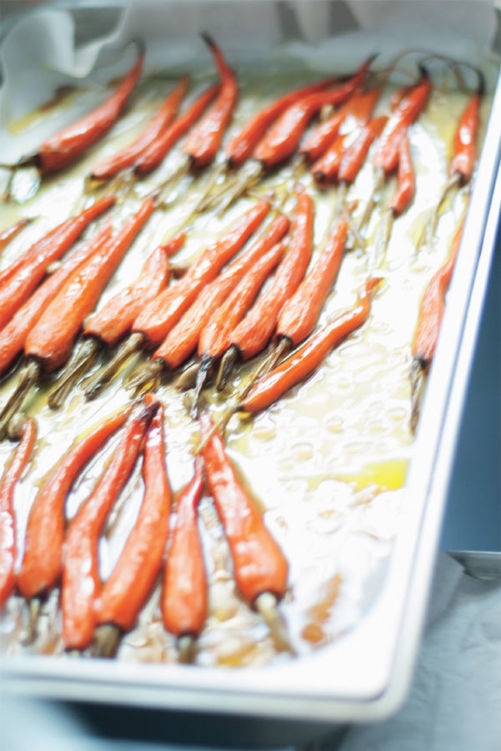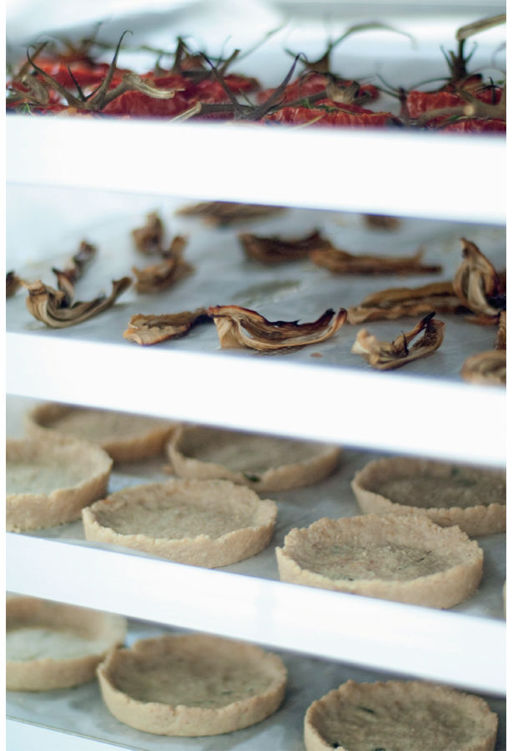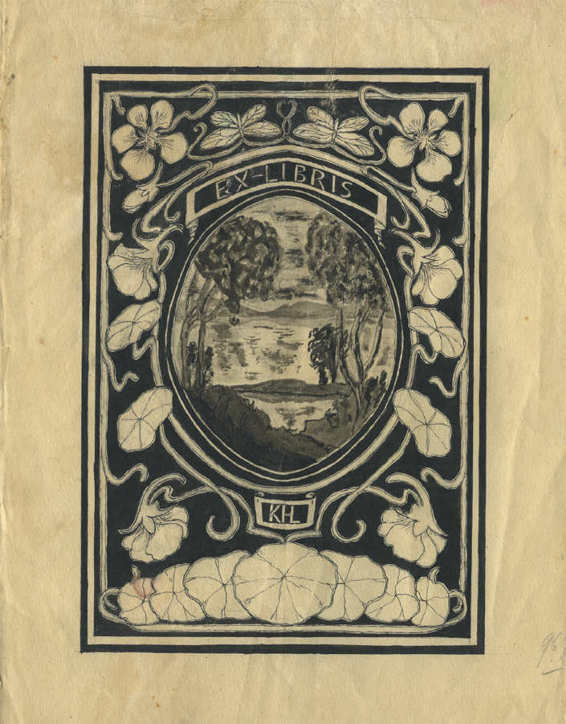Here are 150 dairy-free and gluten-free vegan recipes that let you into the secrets of creating gourmet raw cuisine for every day. Eating organic, nutritionally dense, uncooked plant foods can really improve your health and well-being because the less food is processed, the less stress it puts on the digestive system. The three sections in this book Raw Materials, Staples and Recipes take you on a journey through creating delicious raw vegan cuisine from scratch: from using a dehydrator and stocking your pantry with the best ingredients, to making raw vegan staples for your fridge and freezer, to combining these staples to make delicious breakfasts, soups, salads, pastas, risottos, tarts, desserts and chocolates. The result is clean, delicious, nourishing food that is full of goodness for body and soul.
Kitchens are where I have spent most of my life. My grandmothers kitchen in Iran is the birthplace of my identity it is where everything I know about myself was formed.
My earliest memories are of stealing cherries and pomegranates from my grandmothers backyard, before they were fully ripe. She had a cherry tree and a pomegranate tree, and we were not allowed to eat the pomegranates inside the house, because the juice would go everywhere, but the juice of the pomegranate is the best thing I have ever tasted in my life. I still love to cook with sour, half-ripened cherries and pomegranates, of course, with rosewater. I remember these massive tall garden walls with big Mohammadi roses tumbling everywhere. Their smell is unforgettable. No other rose smells as good as that.
Once you have smelled these roses you can understand why Iranians use rosewater in everything. In Iran, all the mosques are washed with Mohammadi rosewater and theres rosewater in all our desserts, and even our savoury dishes. My mum would also wash the floors with rosewater, and I do the same. I was born in Iran in 1979. My memories of my early childhood revolve around the kitchen and garden of my grandmothers house in northern Tehran, where I lived with my family. During the turbulent years of the Iranian revolution of 1979 and the subsequent war with Iraq, my family experienced great difficulties.
My father, a recognised film director and actor, was seen as a traitor to Islam due to his film work and we were forced to flee Iran when I was seven years old. First we fled to Turkey for almost three years, then spent another two years in Malaysia before settling down in New Zealand as political refugees in February 1992. When I was eighteen years old, I started working in Richard Ransfields kitchen at Caf 98 in Auckland. It was here that I truly began to understand the significance of our relationship with food. It taught me the importance of technique, structure and the value of the classic Western repertoire. Until then, nothing had ever tasted quite as good as my mothers food.
I then moved to Aucklands harbourside caf Viaduct and worked my way up from deep-fry chef to executive cold larder chef within nine months. This was during the hectic time of New Zealands Americas Cup victory in 2000. What a steep and wonderful learning curve! But moving from place to place as a child must have fuelled in me an intense desire to learn more about culinary traditions around the globe, so I then spent more than a decade travelling in Asia, the Middle East, Africa, Europe and South America. In the UK in 2002, I was lucky enough to work with Ruth Watson at the Crown and Castle Hotel in Orford, Suffolk. Here I experienced first-hand how food presentation and modern fusion cooking could be elevated to a whole new level, using only the freshest of fresh ingredients. It was Ruth who encouraged me to trust in my palate and who gave me the confidence to call myself a chef.
Then, a stint at the world-renowned River Caf with Ruth Rogers and Rose Gray set me on the food journey that was to culminate in botanical cuisine. All these experiences helped hone my palate and my skills, and opened my mind to the possibilities of re-imagining raw cuisine. In early 2010, I arrived in Australia from Japan, ready for a new culinary adventure one that nourishes, helps nature, is economically sustainable and for the most part easily accessible. The journey evolved from conducting culinary educational tours around Australia during 2011 to manufacturing a sustainable organic raw vegan range of products. Today, I am the managing director of the Melbourne-based business botanical cuisine. We pride ourselves on making simple, nutrient-dense products in small batches, using only the freshest, ethically sourced organic ingredients available to us.
Our products are free from dairy, gluten, sugar, soy and preservatives, and the range is made at low temperatures, with minimal processing, no artificial additives and using sustainable methods. (For the home kitchen and greater convenience, soy-based miso and tamari may be used.) As a means to teach these skills, I founded the botanical cuisine academy. The culinary arts never stop evolving; they break new boundaries and unveil new standards for creativity and excellence. Imbued with a passion for health and humanity, my goal is to inspire others to work towards a better, cleaner, animal crueltyfree world.
Making this book wasnt about promoting the health benefits of plant-based cuisine, as that is a given. Rather, its goal is to give you the tools to create a structured, functional kitchen, and to inspire good habits using the following elements: an organised kitchen, carefully chosen raw materials and lovingly prepared staples.

